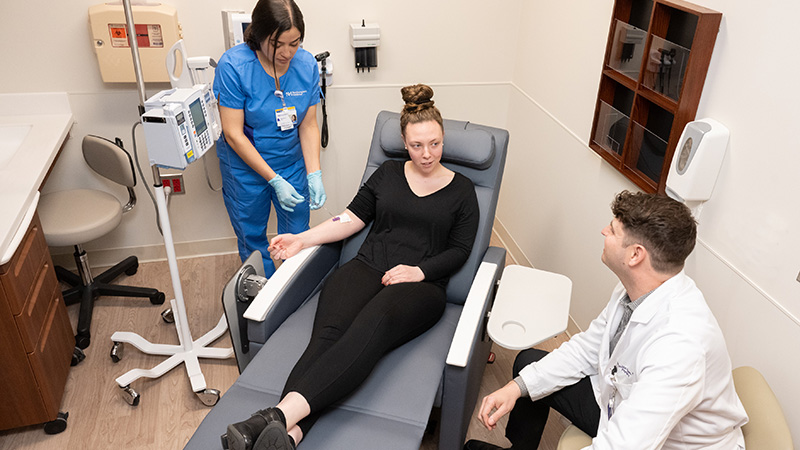Why Some Older Adults Are Reluctant to Ask for Help
How to Have a Conversation About Aging With Older Adults in Your Life
Updated September 2024
As parents age, adult children often find themselves facing a new challenge: convincing their parents to accept at-home assistance or care. This situation can be difficult for both parties.
Lee A. Lindquist, MD, MPH, MBA, a geriatrician at Northwestern Medicine explains, “Many older adults think that by accepting help, it’ll cause them to leave their home to go into a care setting. Therefore, they think if they don’t accept help, they’ll stay in their home longer. It’s actually the reverse. It’s about enabling them to stay in their homes longer by accepting help.”
To better understand this growing concern, Dr. Lindquist recently conducted focus groups of nearly 70 participants, ages 65 and older, in the rural, suburban and urban areas of Fort Wayne, Indiana, and Chicago.
Reasons Aging Adults Are Reluctant To Accept Help
The research revealed some reasons why older adults are reluctant to accept help:
- Fear of losing independence. Accepting help may create the perception that they are no longer able to do certain things, like driving or running errands, and they may feel less independent as a result.
- Desire to not be a burden. Even if help is readily available, older adults may feel like they are a hindrance to others.
- Lack of trust. From hired caregivers to other relatives, older adults may not know who they can trust.
- Fear of giving up control. Older adults may fear losing control or giving control to others.
Effective Approaches to Offering Help
If an aging adult in your life is resisting help, here are some ideas to change the conversation:
- Reframe independence. The term interdependence more accurately describes how all people rely on each other. No one is truly independent. By asking for help, older adults are not becoming less independent; rather, they are embracing interdependence.
- Discuss the benefits to others. By accepting help, older adults are in turn giving a gift to the person providing help, because helping others can bring immense joy and satisfaction.
- Overcome the initial ask. Much like riding a bike or asking someone to dance, there is a degree of fear that comes with uncertainty. The first time you ask for help is the hardest, but it gets easier over time.
Dr. Lindquist admits that asking for help carries a social stigma. However, by using this information, you can have meaningful conversations with your loved ones. Dr. Lindquist explains, “Ultimately, it’s about helping people age in place, which is what’s best for most older adults, and trying to find a win-win situation for everyone.”
Support to Help You Thrive
Dr. Lindquist’s focus group research was part of a larger study for the online tool planyourlifespan.org. This tool allows families to communicate and plan for events like hospitalizations, falls and memory loss. It also provides information about available local resources should a health crisis occur.






